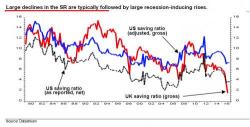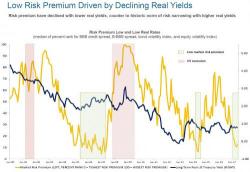The Fed Gave Wall Street A Bomb, And The Taxpayers Are Paying Ransom

Authored by Tho Bishop via The Mises Institute,
When Janet Yellen testified before the House Financial Services Committee last month, she faced grilling on a topic that hasn’t received enough mainstream attention: the interest being paid on excess reserves at the Fed. While the topic has come up occasionally since the program began in 2008, it is worth noting that Yellen was pushed by both Jeb Hensarling, the committee chairman, and Andy Barr, the chairman of the Monetary Policy Subcommittee.


